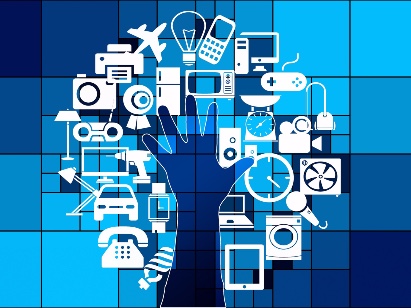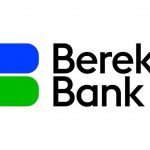Internet of Things: The Promise of The Future
Internet connectivity is powerfully pushing back the limits of our reality – smart systems and environments fit smoothly into our daily routines, responding dynamically to behavior and anticipating needs through a knowledge of user preferences.
Tech companies are producing devices equipped with sensors and self-monitoring tools which help users to automate mundane tasks including standard financial transactions. The Internet of Things (IoT) marked an exciting turning point by enabling devices to manage payments and making it clear that the future is all about collaborating and connecting.
IoT-triggered payments require that the financial sector provide more agile solutions and cooperate with payment device manufacturers and service providers, offering a tailor-made and streamlined experience for customers.
CHANGE HAS COME
IoT qualitatively changes peoples’ lifestyle, making shopping intelligent and enhancing the potential for financial institutions to become more embedded in the world around us.
IOT CREATES A NETWORK OF CONNECTED AND INTERACTING DEVICES WHICH ARE INCREASINGLY BECOMING AUTONOMOUS AND WORKING WITHOUT HUMAN INTERVENTION
Customers no longer need to carry cash or cards in their wallets and can now make purchases with different devices from anywhere at any time with just one click. Moreover, becoming a household concept, devices can act by themselves — from smart watches to smart cities.
The volume of global payments via IoT systems is set to continue to grow. And IoT enables businesses to improve efficiency and strengthen relationship with customers.
The subscription payment model is currently booming. Users expect that almost everything can be bought and sold on a scheduled time basis. But what is truly amazing is that now things can make payments on their own and not just on an established regular basis; they can do it depending on the specific needs at that moment. Smart household appliances, cars, homes, what’s next? The Internet of Things will inevitably lead to the banking of things, meaning we will spend less time micromanaging our homes and more time living in them: cars will automatically manage petrol refueling, water and electricity meters will automatically send readings to suppliers and pay the bills, coffee machines will purchase new capsules and prepare coffee in the morning just when the owner wakes up, rosaries will make donations and compile statistics about how many times devotions have been made. But won’t people lose control over the independent payment world? Are banks ready to support, process and control such autonomous transactions?
The new connected world provides endless value for businesses and consumers, fostering behavioral changes in how people manage their finances. Ubiquitous recurring and trigger-based payments through IoT are also bringing new challenges in terms of security and fraud prevention, leading to a unification of payment methods and new standardization requirements. IoT market participants need to learn how to reliably protect their systems.
WHAT IS IT ALL ABOUT?
Despite the convenience, entrusting money to an algorithm is definitely more worrisome than controlling finances by yourself. However, IoT technologies provide advanced spending analysis tools and many other beneficial features:
- Autonomous payments with household appliances for the resources and services they need using a wallet of things
- Asset usage telemetry allowing accurate automated leasing price calculation
- Remote control over collateral without the need to take it away from the customer
- Frictionless customer onboarding and knowledge of their pain points
- Data from wearable devices regulates life insurance payments
- Driving behavior data determines personalized auto insurance payments
- Fine-grained tracking of goods ensures there is no spoilage during the shipment process
- Reduced dependence on the human workforce
- More efficient customer support
- Smart devices like Amazon Alexa, Google Home or similar enable transactions via voice commands.
FRAUDSTERS DO NOT SLEEP. IOT IS ON THE ALERT
When it comes to financial services, innovation goes hand in hand with security. It is extremely important to ensure robust data security and monitor suspicious activity. With the active use of encryption and authentication tools, comprehensive information compiled about customers, improved accuracy and speed of data collection, IoT can minimize the risk of fraud and provide time-saving enhanced productivity.
MOVING FORWARD
IoT is changing the way trade and payments are handled, providing retail banks the opportunity to collate more information on customers, offer personalized services and improve efficiency.
The power of IoT is boundless. With the upcoming introduction of 5G, data-transfer speed will increase significantly, and the financial services industry should seize the resulting opportunities.
SOLANTEQ IS AN INNOVATION ORIENTED COMPANY WHICH OFFERS LEADING-EDGE, HIGHLY EFFECTIVE SOLUTIONS TO DRIVE THE GLOBAL DIGITALIZATION TREND IN THE FINANCIAL INDUSTRY. SOLAR DIGITAL CARD AND SOLAR MOBILE PLATFORMS ALLOW OUR CLIENTS TO EMBED BANKING IN IOT DEVICES, SIMPLIFY DAY-TO-DAY OPERATIONS, ADDRESS CUSTOMER NEEDS AND ENHANCE SECURITY


